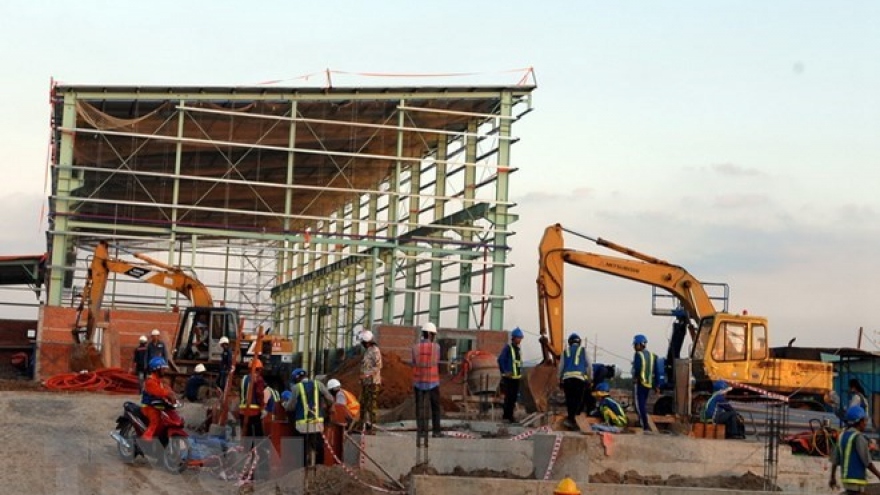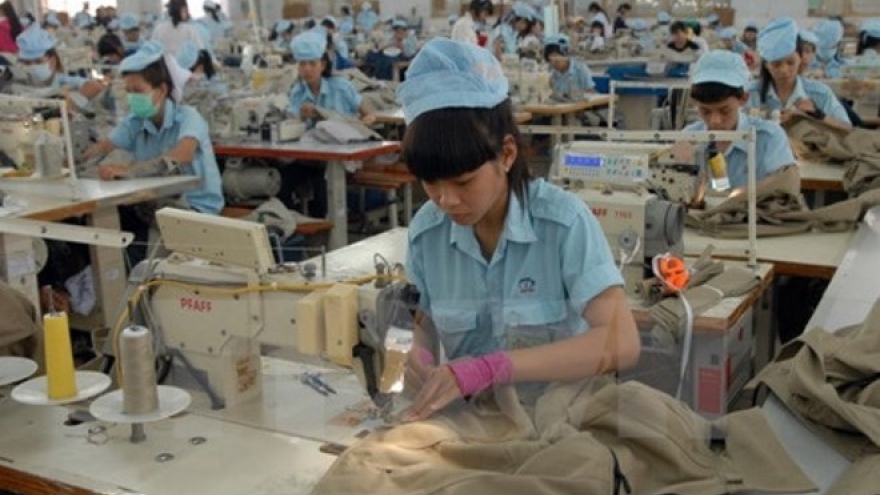FDI in HCM City shrinks dramatically
Foreign direct investment (FDI) in HCM City is dwindling and cannot continue to drive the economy, Su Ngoc Anh, Director of the municipal Department of Planning and Investment, has said.
 |
|
A production line for electronic components at the Nidec Sankyo Vietnam Corporation in the Saigon Hi-Tech Park (Photo: VNA)
|
In the same period last year, there had been 428 FDI projects worth US$743 million.
The five biggest projects this year have capital of US$25–US$70 million each, while there are several worth just US$2,200-US$3,000.
“These tiny sums of money from FDI projects cannot contribute anything to the city but we cannot refuse them,” Anh was quoted as saying by Thanh Nien (Young People) newspaper.
Nguyen Thanh Phong, Chairman of the city People’s Committee, has expressed concerns many times about the size of the companies.
He has instructed related authorities to review the business environment and find out why the city cannot attract large FDI projects or if there are any challenges that scare away investors.
Dr Dinh The Hien, Director of the Institute of Information and Economic Research, said in the past the city had attracted FDI in infrastructure and property, where the sums involved are often very large.
“In recent years, it has become difficult [for the property industry] to find clear land in HCM City,” he said.
“In fact, the city is facing challenges in finding lands for setting up plants and other production facilities.
“There are many investors who would like to invest large amounts in production with huge plants but it is not easy to find large tracts of land in HCM City, and they have other choices in neighbouring provinces like Binh Duong, Dong Nai, Ba Ria-Vung Tau, and Long An.”
The city has set its sights on the high-tech industry but has not attracted any major investors after the Intel plant, which set up a US$1 billion facility at the Sai Gon High-tech Park.
Hien said: “It is hard for HCM City to attract large foreign investments if it retains its old attraction for real estate and manufacturing instead of infrastructure and technology.”
He said the city should consider the efficiency of a project rather than its investment.
“We have seen many ‘huge’ projects that required a lot of land but did not work well, resulting in bad consequences for the city,” he added.
Do Nhat Hoang, head of the Ministry of Planning and Investment’s Foreign Investment Department, said investors normally need three to four years to decide where they can invest.
“FDI inflows into HCM City are low now but can recover in the near future. However, the limited land availability is the biggest challenge for the city in attracting investment.”
Even if land is available, it is very expensive.
Hoang pointed out that industrial investors would not prefer HCM City because land rentals are too high at around US$160 per square metre per year.
“They only need to move their plants five to 10km from HCM City, and the land rental is only 50-60 per USD square metre. HCM City’s strengths are trading, services and high-tech industries, which do not require too much money.
“If HCM City wants to attract big investments, it must have land, infrastructure, improved human resources, research and development centres, and close links with neighbouring provinces.”
It should not pay attention to the investment size and should focus on knowledge and technology instead, he suggested.
“Knowledge and technology are the new requirements to compete in the industry 4.0 era.”
The Government recently approved the conversion of 26,000ha of agricultural lands in HCM City for use for services, industry and urban development purposes.



